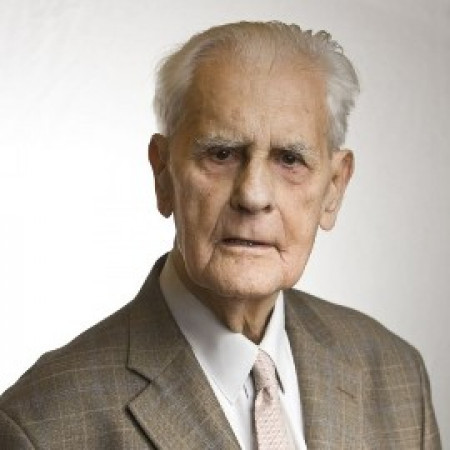István Párkai gained his diploma in the piano teacher training department led by Béla Ambrózy at the Music Academy (1953), and studied conducting with László Somogyi (1950-55). As soon as he gained his first diploma, he began to take part, as assistant lecturer, in the training of choir masters in the department led by Zoltán Vásárhelyi. This became the main area of his work as a teacher at the Academy. From 1981 till 1998, István Párkai was professor and head of the department training future secondary school singing teachers and choir masters. But he taught – and teaches – not only at the Academy, but also at choir master courses organised by the Institute for Adult Education, later the Hungarian Adult Education Institute, as well as master classes at home and abroad. Thus the number of his students amount to hundreds. It is owing to his thorough, well thought out directions, befitting a master, that they were able to acquire the professional secrets of leading a choir and became thoroughly versed in producing choir performances of various ages and styles in the appropriate style. He has facilitated the preparation of would-be choir masters also with his textbook, The Fundamentals of Conducting Choirs.
Nor less significant is the artistic and at the same time pedagogical work which he carried out over three decades with the Ferenc Liszt Chamber Choir, the "elite" ensemble of the students of the Academy. He played a great part in ensuring that the choir repertoire has been enriched with new Hungarian works, among them works by the youngest composers at any one time, as well as pieces by contemporary composers abroad (László Sáry: 3 Madrigals; Dubrovay: A Halál Félelmei (The Fears of Death); Kocsár: Tűz, te gyönyörű (You beautiful fire); Orbán: Kóruskönyv, Motetta (Choir book, Motetta); Ligeti: Lux Aeterna;Poulenc: Figure humaine; Messiaen: Cinq rechants; P. Ebeb: Love and death).
Not were the works of the old masters omitted. István Párkai and his chamber choir made the first recording of several Italian works with Hungarian connections dating from the late renaissance, the Gyulafehérvár madrigals of Mosto, and Simonelli's mass composed to celebrate the retaking of Castle Buda (1686). They made about half a dozen independent recordings, as well as participating in many others. However, it was primarily by participating in concerts held at home, in ten European countries and in the United States that they spread the fame of Hungarian choir culture.
In the sixties István Párkai had significant undertakings also with amateur choirs and orchestras, including the concert-style performance of the operas, Purcell's Dido and Aeneas and Gluck's Alcestis. In later years it was as the leader of the big choir of the Music Academy that he led the performances of the large-scale choir works written by Franz Liszt and Zoltán Kodály.
István Párkai was awarded for his artistic work the Liszt Prize (1978), the Béla Bartók-Ditta Pásztory Prize (1997), the Artisjus Prize (1995 and 1999), and for the whole of his activities the officers' cross of the Order of the Republic.
M. I.



